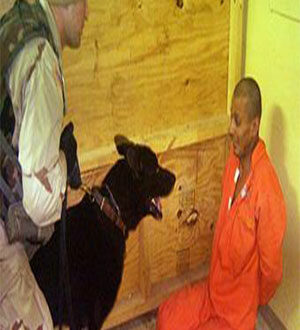The American Psychological Association secretly collaborated with the administration of President George W. Bush to bolster a legal and ethical justification for the torture of prisoners swept up so-called war on terror in the post-Sept. 11, 2001, according to a new report by a group of dissident health professionals and human rights activists.
The report is the first to examine the association’s role in the interrogation program. It contends, using newly disclosed e-mails, that the group’s actions to keep psychologists involved in the interrogation program coincided closely with efforts by senior Bush administration officials to salvage the program after the public disclosure in 2004 of graphic photos of prisoner abuse by US military personnel at Abu Ghraib prison in Iraq.
“The APA secretly coordinated with officials from the CIA, White House, and the Department of Defense to create an APA ethics policy on national security interrogations which comported with then-classified legal guidance authorizing the CIA torture program,” the report’s authors conclude.
The involvement of health professionals in the Bush-era interrogation program was significant because it enabled the Justice Department to argue in secret opinions that the program was legal and did not constitute torture, since the interrogations were being monitored by health professionals to make sure they were safe.
The interrogation program has since been shut down, and last year the Senate Intelligence Committee issued a detailed report that described the program as both ineffective and abusive.
Rhea Farberman, a spokeswoman for the American Psychological Association, denied that the group had coordinated its actions with the government. There “has never been any coordination between APA and the Bush administration on how APA responded to the controversies about the role of psychologists in the interrogations program,” she said.
By June 2004, the Bush administration’s torture program was in trouble. The public disclosure of the images of prisoners being abused at Abu Ghraib prompted an intense debate about the way the United States was treating detainees in the global “war on terror,” leading to new scrutiny of the CIA’s so-called enhanced interrogation program.
 Mouood Mouood English Edition
Mouood Mouood English Edition




